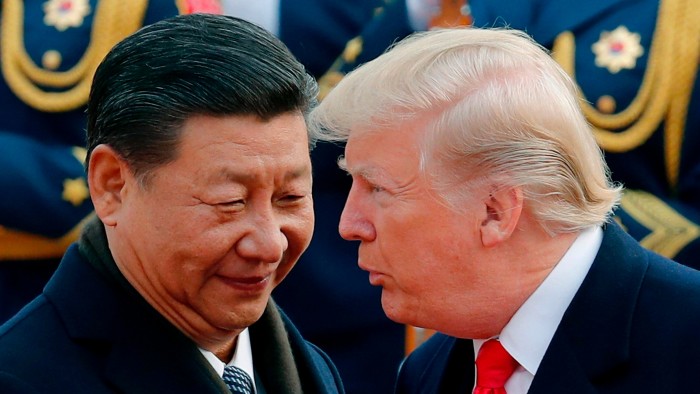Unlock the White House Watch newsletter for free
Your guide to what the 2024 US election means for Washington and the world
When US presidents opine on China, it is rarely good news for investors in Chinese equities. At least in recent years, announcements have tended to mark punitive measures such as blacklists, export restrictions and tariffs.
That trend was bucked on Friday. Chinese stocks rose after Donald Trump remarked on a “friendly” conversation with Xi Jinping and hinted at a potentially softer approach toward tariffs. The diplomatic cordiality between geopolitical rivals may not guarantee lasting progress on trade talks. Yet for local stocks, it arrives at a perfect time.
Blue-chips such as Tencent, Alibaba and JD.com gained 3 per cent on Friday, as did Hong Kong’s benchmark index which is particularly sensitive to geopolitical tensions. The Hang Seng rose about 2 per cent, bringing gains to 6 per cent since last week. That suggests relief that Trump says he would rather not have to use tariffs against on Chinese goods — a big question hanging over valuations for the past year.
China’s exports to the US account for about 4 per cent of its GDP. In the short term, tariffs drive up costs for Chinese exporters and squeeze margins. Their long-term effects, such as weakening the renminbi and inflating risk premium for Chinese stocks, raise concerns about capital flight. If Trump is taking a more flexible approach, these measures may end up being used as a bargaining tool with China rather than an end goal.
That in turn allows investors to consider other factors that could support Chinese stocks in future. Beijing is trying to improve shareholder returns. Large-scale stimulus measures and plans to inject around Rmb1tn ($138bn) in long-term capital into the financial system ought to improve sentiment.
Chinese companies paid out a record Rmb2.4tn in dividends last year while share buybacks also hit an all-time high, according to official data. This push has particularly benefited high-dividend stocks, such as banks, insurers and utilities. Meanwhile, regulators have been directing insurers and mutual funds to increase local stock holdings — which could draw more capital into the country’s markets.
Valuations remain relatively low, with China’s blue-chip CSI 300 Index trading at around 1.3 times book value. By contrast, the S&P 500 stands at around four times that level.
The reliance of local exporters’ earnings on geopolitical dynamics means their share prices will remain highly sensitive to unfolding developments in the coming months. But for now, there is enough good news — both real and rhetorical — to support short-term gains.
Read the full article here

